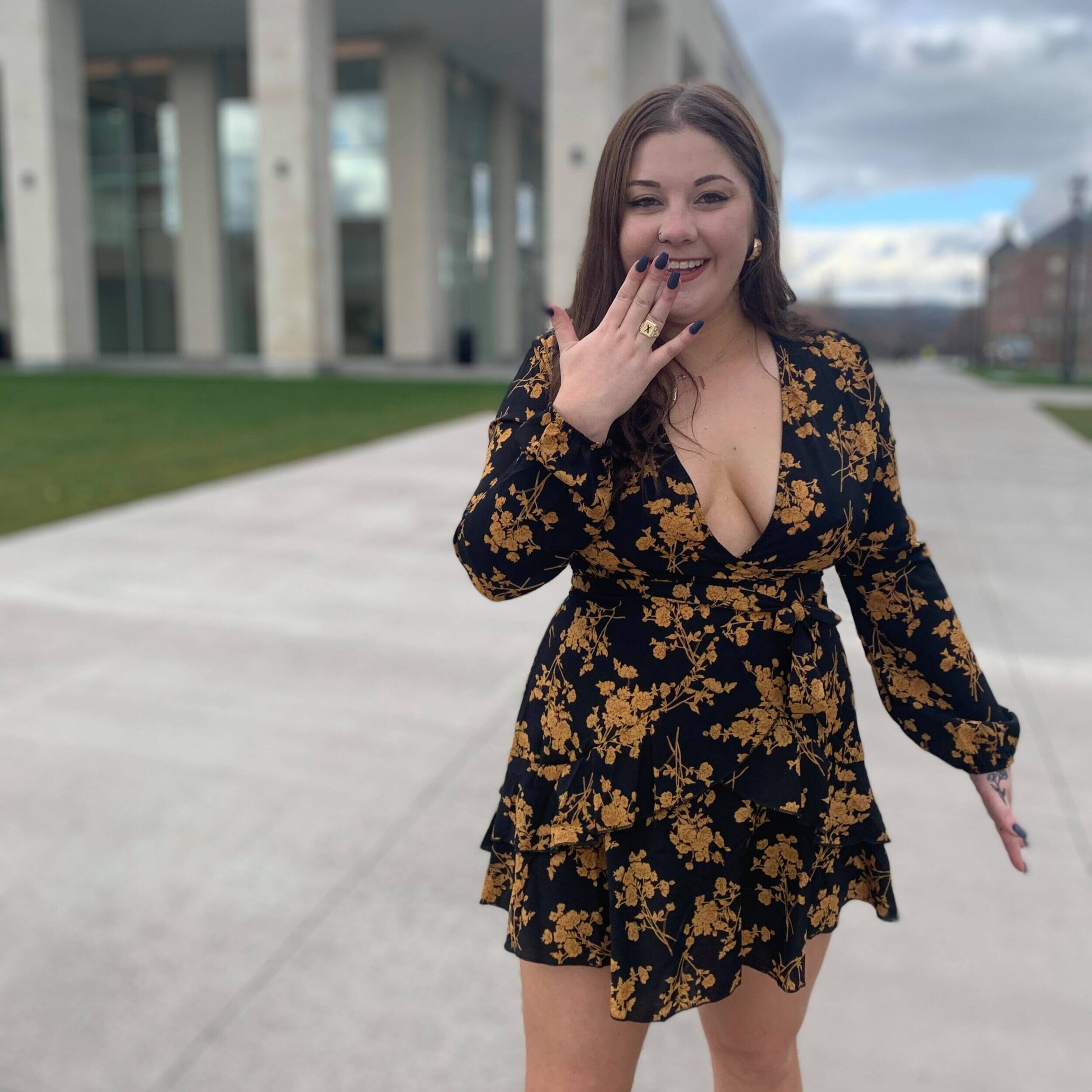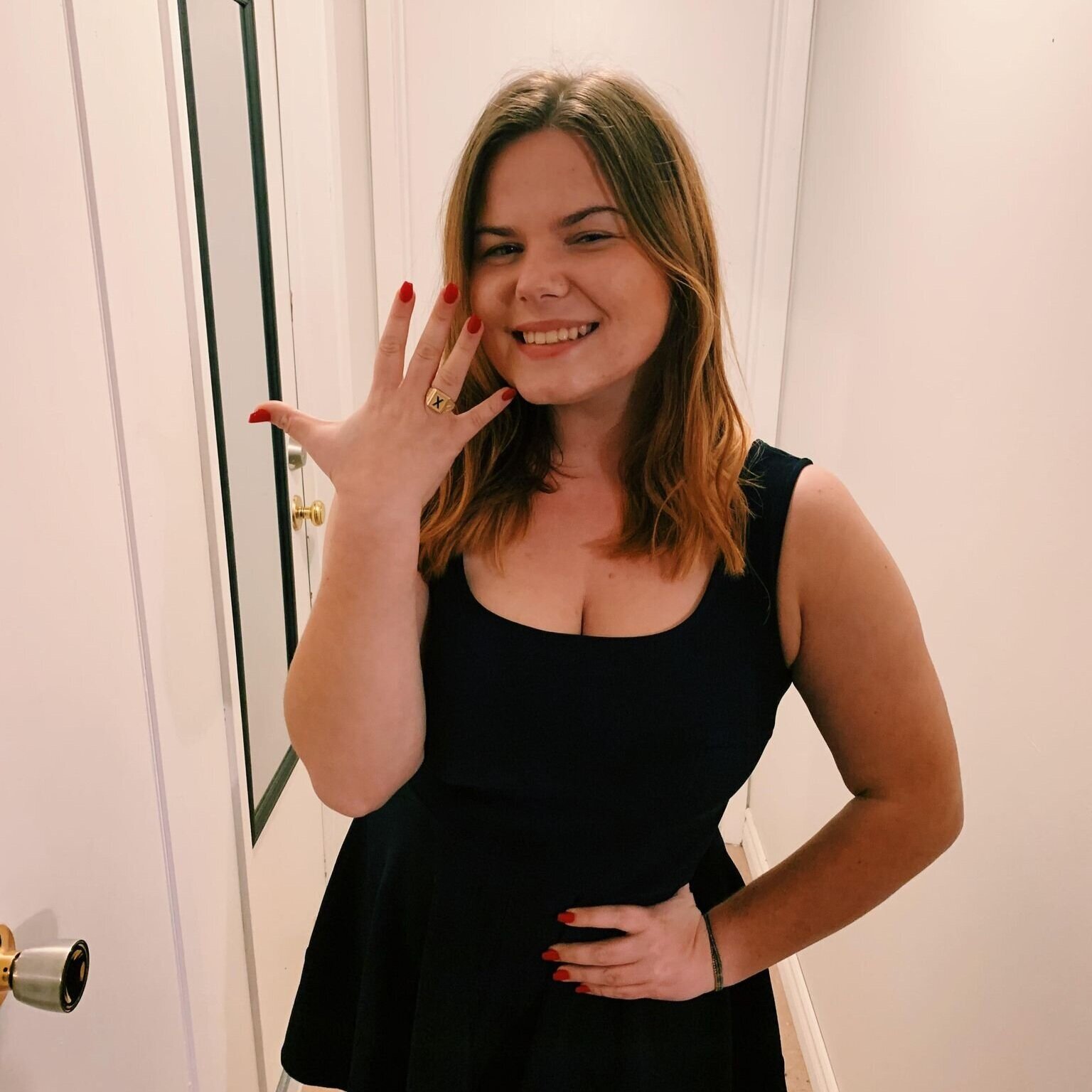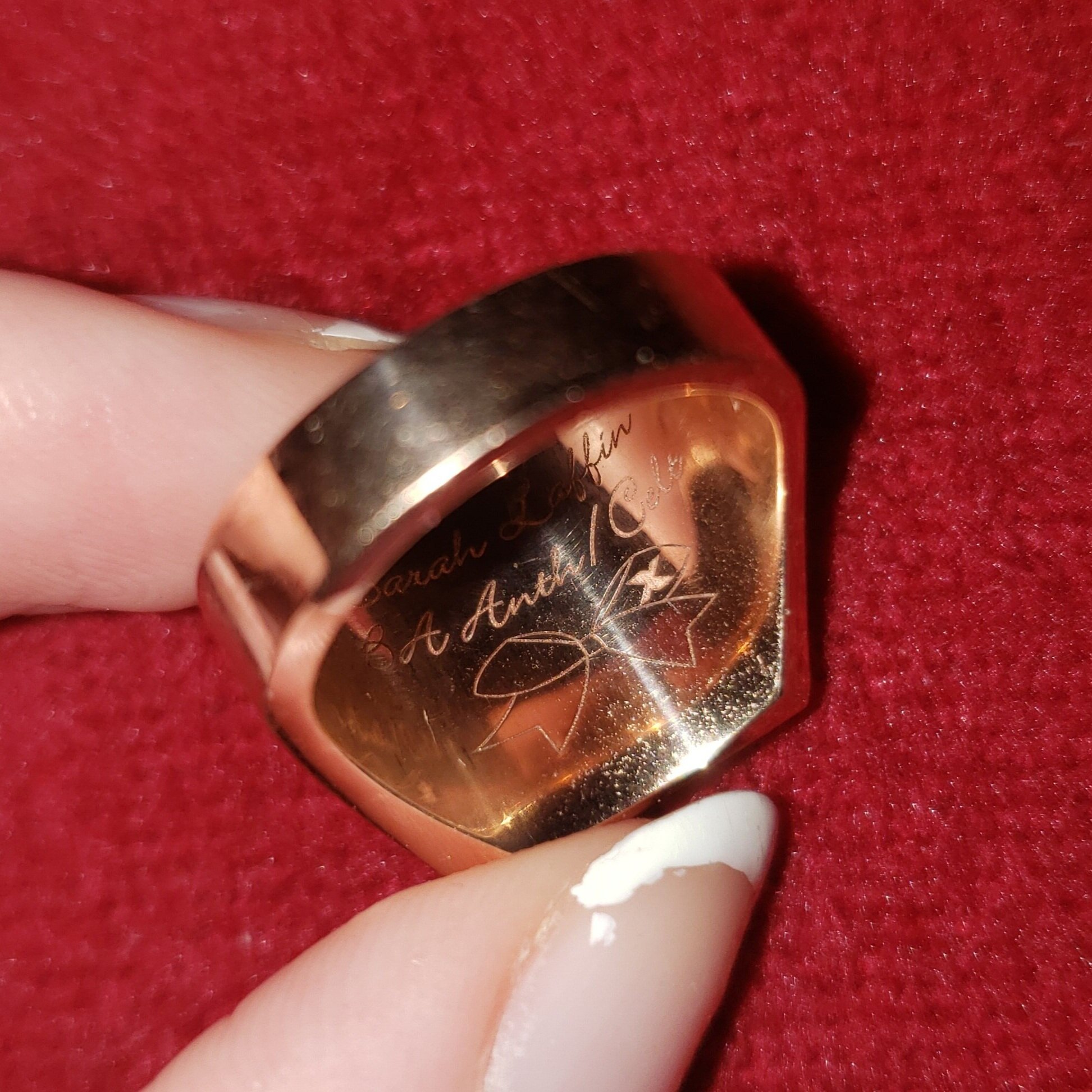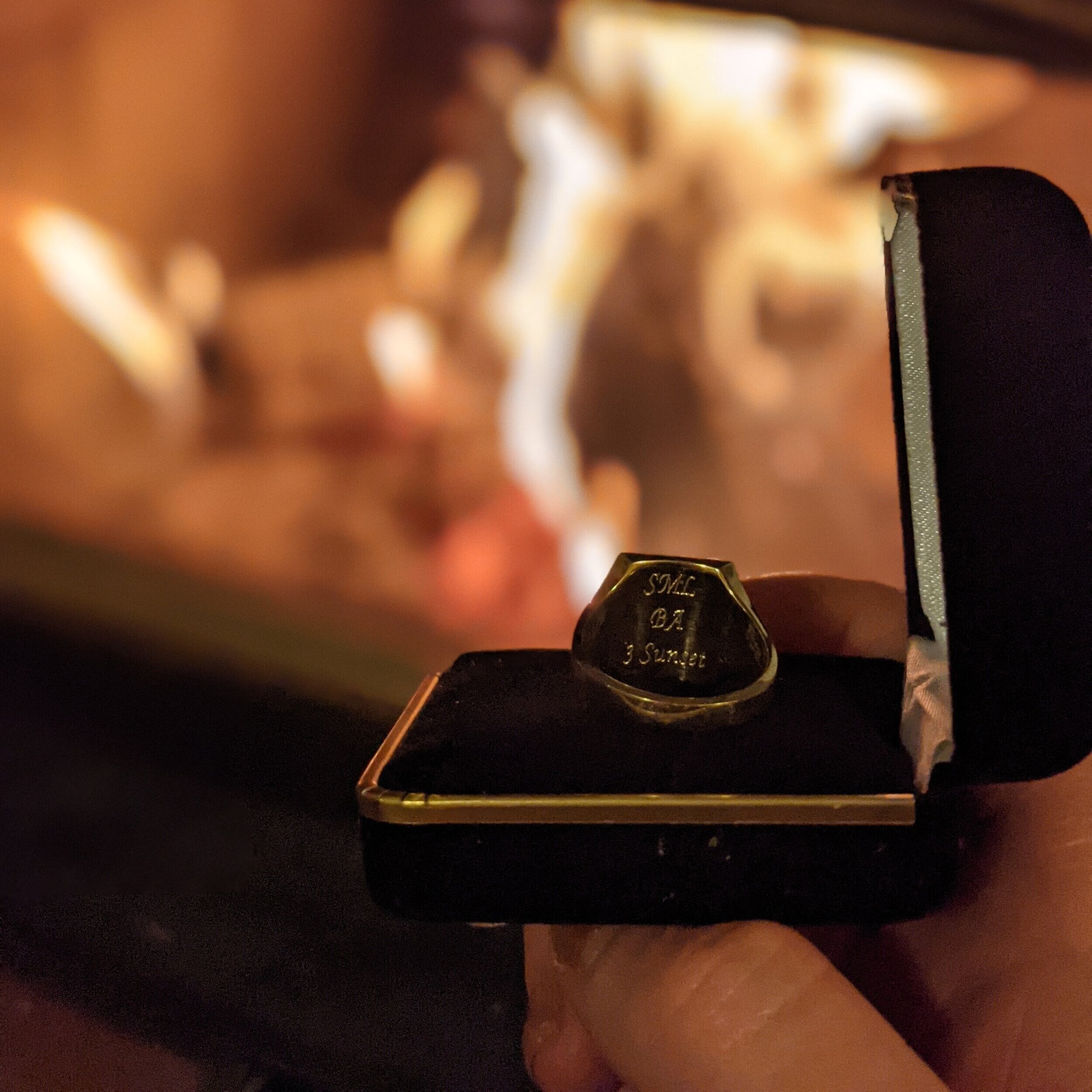Editor-in-Chief Will Fraser sat down with each of the candidates for 2020-2021 First Year Representative.
Candidate: Brendan Roberts
Slogan: satisfying your hunger for change
WF: Tell us a bit about yourself and why you decided to run.
My name is Brendan Roberts. I'm from Calgary, Alberta. I, you know, grew up in Calgary, but I lived in Halifax for a few years. My family still has a cottage in Nova Scotia, that we usually come back to. You know, so I do, I do have a bit of a connection to Nova Scotia and that's sort of why I came to StFX originally. I'm running because I've always really been interested in student government. So I was my high school student council president and I've always been trying to get really involved. So you know, here at StFX, I'm actually the director of academics for the Schwartz Business Society. And yeah, I'm just running because, you know, I've heard from a lot of different students just, you know, there's some clarification, I think that could be made, just regarding different policies, especially in terms of the COVID-19 policies, that maybe students aren't fully understanding and I'm not saying that, you know, we're gonna get everything changed, and it's not going to be a normal year, because it isn't a normal year, but, but perhaps maybe just asking for a bit more clarification from the university.
WF: Can you tell us what the job of first year rep involves?
It's obviously to represent the voices and the opinions of all first years on campus to the best of your ability. So, for me that looks like, you know, trying to try to take polls and surveys from first years. So I would definitely try and incorporate as much input from the broader first year community as I could, you know, I can, I can always just ask my friends, my personal group of friends, but that doesn't necessarily represent everyone else on campus and I know, you know, opinions vary between residences and friend groups and programs and stuff. So it's kind of just taking all the opinions of all first years on campus, and trying to decide, you know, what's in the best interest for everyone and I can obviously relate to that, because I'm a first year myself.
WF: What is your platform?
So, I have three main points for my platform. The first is diversity, equality, and, just inclusivity on campus. So, trying to promote kind of those three things and diversity amongst different people and also trying to promote and support the different groups and kind of programs on campus. So ones like the, different societies that support different minority groups, as well as like the sexual violence support program, I can't quite remember the name, but there is one on campus that I would like to support a little bit more and kind of promote it and make people aware that those programs are on campus, for the students to access if they need them. My second biggest point, or platform policy idea would be trying to work with the university and with the Students' Union, just to, if we are still required to self-isolate, after the semester one break during the holidays. It's trying to make a better self-isolation plan. So just, you know, taking what we learned in semester one and applying it to semester two, and just trying to, you know, maybe that's something that looks like pushing the start date of classes back another two weeks, as we did in semester one, or maybe it looks like starting classes on a normal time, but doing the first two weeks online so that students have something to do while they're self-isolating. I mean, there's a million other possibilities. So, it's kind of just taking everyone's sort of opinions and ideas and trying to collaborate with everyone. And then my third and final biggest point is just as I said before, working with the university and working with first years to help sort of provide a bit of clarification and communication between first years and the university administration just to you know, if there's policies or rules that students don't quite understand, sort of trying to voice on behalf of the administration, why things are that way, and then also voicing the concerns of first years for policies that maybe, you know, we don't quite understand and we don't feel that should be in place, voicing those concerns to university administration. So, to kind of create a bit of a two-way street there.
WF: If you can only accomplish one thing on your platform, which would it be?
If I had to pick one, honestly, it would be trying to promote the diversity and the inclusivity on campus just because, you know, people can live with some odd rules and restrictions in place in terms of the COVID-19 crisis but for people who are maybe facing discrimination or things like that, that's something that they're going through every day and I think that for trying to make a difference in their lives for people who have maybe been going through this their entire lives, this is probably what I would want to try and accomplish the most. But, obviously, that's not to say that I'm going to work any less hard at trying to create communication between university administration students, first year students, in terms of the COVID-19 crisis.
WF: The Students’ Union has historically been criticized for being elitist. How will you make The U more open and approachable to students?
You know I think that by being a first year student, myself, and not having any previous connection, or any connection at all, to the U, I think that sort of the first step here, you know, I've heard, you know, people, you know, when whenever there's sort of a bigger, sort of godlike figure, in this case, I guess you could call that the U, people will always be critical of organizations like that. But, you know, for me, I want to try and be sort of communication between the students and the U. So, by being a first-year student, by not having any connections to the U, I think that I can be a bit more approachable than, say, one of the VPs on the U.
WF: What do you think of StFX’s handling of COVID-19? What would you change?
Yeah, so I mean, this is obviously part of my platform, so I've spoken a bit on this already. But I think that StFX has done an amazing job. You know, in hindsight, we can talk about all the little things but, but in hindsight side effects has done an amazing job at handling this crisis, just because, you know, they, they took a world pandemic, and, worked with the community with intergovernmental organizations, provincial government with the health care system, and put in place a plan so that students could come from across Canada, and there's even a few, you know, students from outside Canada that are able to come in and study here and we're one of the only universities really, that I've heard of that is doing in person classes at all. So, I think that's a really amazing thing and it's, it's such a privilege, and I think that all the students here should be so appreciative and very lucky,
that we're in a position where we can, you know, be a part of this. Now, having said that, you know, I do think that there's some restrictions, you know, that are maybe a little over the top. For example, you know, the other day, my dad picked me up, he was taking me out to lunch and it was, I believe is on Sunday, but I was walking out to the car, he parked a couple streets over just on campus but I had to walk in, you know, I walked with my face mask on, but I was walking alone, there's no one out. So, you know, it seems a little odd that we have to wear face masks outside, you know, especially when we're not near anyone. You know, another big thing I think, for me that I would like a bit more clarification on is, you know why we have to wear face masks when we're in our residence with, you know, a couple people of we're in our rooms and we have friends over whatever, why we have to wear masks then but you know, we can go to meal hall and, and you can have 15 people or whatever sitting at a table from all different residences, eating without your masks. So, you know, just things like that, I think, could use a bit more clarification and maybe some review from the university but in, you know, in the grand scheme of things, I think universities done an amazing job.
WF: Looking at the other candidates, why should first-years vote for you over them?
I think first year students should vote for me because, well, I was, at first the only candidate and I'm one of the only candidates still to have actually released a platform. You know, I have my website linked to my bio that goes into fairly good detail just about my platform, my points and my points of recommendation, but, you know, I'm still one of the only candidates to actually have released a platform at all and I'm the only one to have gone into detail about how I'm going to get things done and exactly what it is I want to try and do. I think that the other thing is, I'm, you know, I've taken a lot of time, especially just this past weekend, where I was walking around with my campaign manager, Marcel, and I was just walking around, you know, just around campus, and we went to the wheel, and just talking to people and just sitting in and seeing what their concerns were, and trying to understand, you know, because my opinion of what's important as a first year might be very different than someone else's. So just trying to understand different people's opinions, and different people's experiences. As a first-year student, I think it's sort of what sets me apart from my opponents.
WF: If you were to lose the election, which candidate do you hope would win?
I can honestly say, you know, all the candidates are, really good people, I don't think I could pick just one candidate. You know, I can say great things about all of them. Katia, she's a really, really kind person, she has, you know, a great deal of respect for me, she's, sort of one of those people who is, you know, she tries to see the bright in things, and she tries to work hard for what she believes in. Hunter actually released a platform a few days ago on his Instagram and, you know, he's been pretty vocal about, you know, what his, what his platform is, and what he wants to try and accomplish in the university. And Anna you know, she's also just an excellent, she's a very kind person as well, like, she, you know, she's working hard and you know, she's just overall a very decent person, a very kind person to speak to, and I think that, you know, whoever gets elected on Thursday you know, they'll have my support and I think any one of us would do a great job.
WF: Anything else you’d like to say to first-years?
I think the biggest thing for me is as much as I would love to have your vote, and I, you know, I will obviously continue to campaign 'till the end of the campaign period. And as much as I want to say, you know, vote Brendan and support me in my platform and, and work with me, you know, the biggest thing is just get out and vote. So, on Wednesday, students, you'll get an email to your X account, with a link from the Students' Union, just where you can log in, and you can vote on Wednesday. But yeah, the biggest thing is just vote and don't forget that on Wednesday, there's a meet and greet at the Inn and if you can show proof that you voted, you get 50% off appetizers.


































